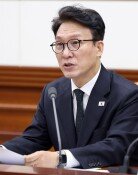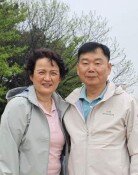[Editorial] A New Clique
The fortunes of those who passed the 17th judicial examination have changed for the better in their official career.
President Roh appointed Constitutional Court justice Jeon Hyo-sook to the post of the head judge of the Constitutional Court.
In the Constitutional Court, Justice Jo Dae-hyun, Chief Secretary Seo Sang-hong, and newly appointed justice Kim Jong-dae, former head of Changwon district court, are among the members of the 17th judicial examination class.
There were no previous examples and would not be in the future that people from the same period of judicial examination rule over the entire body of the judicial institution.
People with 17th judicial examination backgrounds took possession of top-level executive spots such as the Public Prosecutor General and the vice-chief of the Supreme Public Prosecutor´s Office in the Prosecutors office as well.
The practice of collective resigning when one who graduated in the same period becomes the Public Prosecutor General is not applicable to the members of 17th judicial examination class.
There are also two justices of the Supreme Court (Ahn Dae-hee, Kim Neung-hwan) in this group of people.
President Roh emphasized the abolition of academic cliques when he visited the Ministry of Education in the beginning of this month, saying, The reason that existing education system suffers from a lot of problems is because Korean society is based on lots of personal relation-oriented human networks and school factions.
President Roh announced a battle against academic cliquism, but he has made a 17th judicial examination clique, which is more exclusive than academic cliquism.
In the field of law, the examination period one passes is the barometer which shows accessibility to personal connections better than where one is graduated from.
With the remarkable advance of those 17th judicial examination people, unsatisfied senior and junior officials leave their position in this hierarchy-oriented field.
Some people even compare current situation to 8th and 11th graduates from the Military Academy, who were involved in the military coup on May 16, 1961 and military rebellion on December 12, 1979. Is President Roh driving this nomination with realizing the current climate in the field of law?
This nomination of chief justice of the Constitutional Court is an example of narrow, closed cliquism in which one calls in acquaintances from personal connections, not from the best brains.
President Roh is not qualified to criticize academic cliquism any longer.
Convergence of the power at judicial institutions where check and balance should always take place is also against to the principle of separation of three powers, the fundamental principle of democracy.







